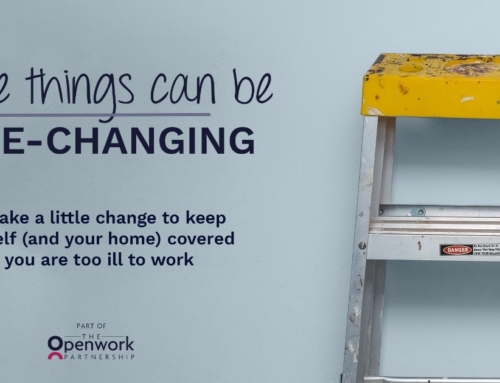How do critical illness cover and life insurance work to protect your income from the unexpected?
With the rise in the cost of living and borrowing, many people are worried about paying the bills if anything happens that leaves them unable to work. Recent surveys have shown that the average UK family doesn’t have enough in savings to be financially secure for long if they’re no longer receiving an income.
What is critical illness insurance?
Critical illness insurance pays a one-off, lump sum if you’re diagnosed with a condition or disability that is covered by your policy. It covers a set number of years and can be offered as extra coverage when you apply for life insurance. You can choose whether you want the payout to rise over the course of the term (so it keeps up with inflation) or the opposite – decreasing because you aim to cover something specific like your mortgage.
How does critical illness cover work?
Certain illnesses are covered as standard by most insurers, including, some types of cancer, heart attack, stroke, organ failure, multiple sclerosis, loss of arms or legs and Alzheimer’s and Parkinson’s disease. Some providers may allow you to add additional illnesses to your policy, which you’ll pay more for. Your children could also be covered as part of your policy so ask your adviser about these options if it’s something you’re keen to have in place.
Although a critical illness diagnosis can mark the start of a claim in some policies, others may only begin to offer protection once your illness hits a certain level of severity. It’s important to work with a financial adviser when reviewing a policy and all the small print before you commit to make sure you are aware of areas not included.
An adviser can help you figure out the best approach to your life insurance plan and any other coverage you need for you and your loved ones.
What is life insurance?
Life insurance pays an agreed lump sum to your loved ones (or any other beneficiaries) when you die. The terms of the amount paid out are set when you buy your policy. Life insurance is there to help ensure your family has financial security during a difficult time without you and to give you the peace of mind that they will be able to continue to pay the mortgage for example.
- Term assurance
Runs for a set number of years and a payout is made if you die during the term. Once the term comes to an end, coverage also ends, so if you die after the end of the term, there is no payout.
- Whole life insurance
Carries on for as long as you are alive and will pay a lump sum when you die. Whole life will cost more in premiums than term life, and you will keep paying the premiums on your policy throughout your life, to stay covered.
- Employee life insurance
Check with your employer to see if you are covered by employee or group life insurance (also known as a death-in-service benefit) as part of your contract. This coverage usually pays between two and four times your annual salary.
“Life insurance pays an agreed lump sum to your loved ones (or any other beneficiaries) when you die.”
Get in touch
We can help you understand how critical illness cover and life insurance helps to provide financial security for you and your family. Please get in touch to arrange a time to chat, telephone 020 7317 7311 or email, info@chapelgateprivatefinance.com
Approved by The Openwork Partnership on 28.11.2023





